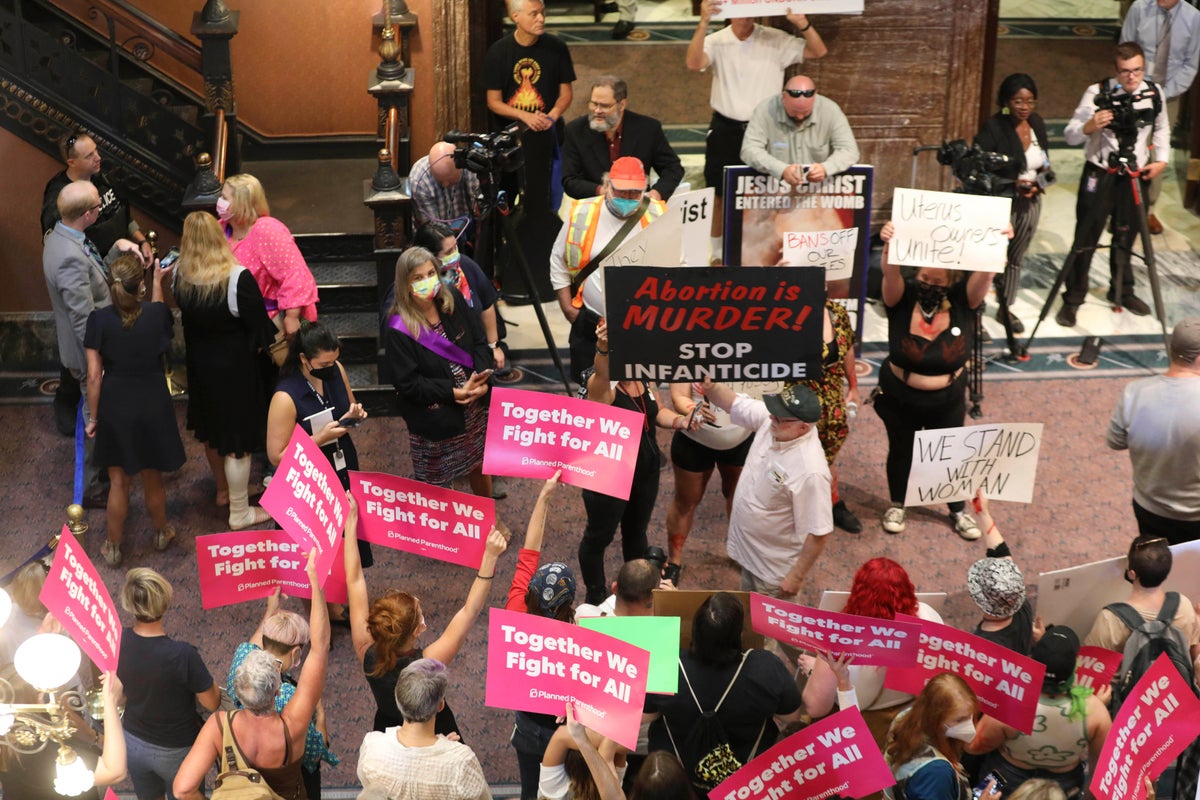
Over 18 months of legal back and forth will come to a head Wednesday in a case that could determine the scope of abortion restrictions in South Carolina.
The South Carolina Supreme Court will hear arguments over whether the state constitution prohibits a 2021 ban on abortions after cardiac activity is detected, typically around six weeks, with exceptions for pregnancies caused by rape or incest or endangering a mother's life.
The arguments come a day after the South Carolina Senate again rejected a proposal to ban nearly all abortions in the state. A conference committee was established to work out the differences between the House and Senate bills.
The lawsuit — brought by Planned Parenthood South Atlantic, Greenville Women’s Clinic and abortion providers — is the latest challenge since Republican Gov. Henry McMaster signed the restrictions into law in February 2021.
Planned Parenthood South Atlantic almost immediately sued. The effort proved successful when a U.S. District Court judge suspended the law on its second day in effect and a federal appeals court upheld that ruling about a year later.
But the restrictions took effect shortly after the U.S. Supreme Court in June overturned Roe v. Wade.
After that ruling, abortion providers turned to the South Carolina constitution’s rights to privacy and equal protection in their effort to protect access. In August, the state’s high court temporarily blocked the ban as the justices weighed the new lawsuit. Abortion is currently banned at 20 weeks in South Carolina.
The South Carolina legislature in 1974 codified the U.S. Supreme Court's decision in Roe v. Wade. A “conflict in the law” arose when lawmakers retained that language in the 2021 ban, the justices on the state's highest court wrote in the preliminary injunction order. The 2021 ban was also “unusual,” the justices wrote, in that it depended on Roe's overruling.
“At this preliminary stage, we are unable to determine with finality the constitutionality of the Act under our state's constitutional prohibition against unreasonable invasions of privacy,” the justices wrote in August.
South Carolina ratified the right to privacy in 1971. Because it did not explicitly mention “abortion," the state's lawyers argue that the right to privacy should be applied more limitedly against searches and seizures.
The abortion providers’ lawyers argue that rights do not have to be expressly mentioned to still provide protections. They also argue that a broader legal understanding of “privacy” had already been established at that time through federal cases like 1965's Griswold v. Connecticut, where the U.S. Supreme Court protected the use of contraception by a married couple.
The abortion providers also challenged the section of the 2021 ban that requires a physician to report allegations of rape or incest made by someone seeking an abortion to a sheriff. Their lawyers argue that the measure forces the disclosure of medical information that is covered by the right to privacy in one's “papers” and “effects."
The state's lawyers argue that the right to privacy may be waived by a voluntary disclosure in such situations. Further, the lawyers argue the provision promotes state interests in protecting “the life of the unborn" and “maternal health” as well as “victims of crimes.”
The abortion providers' lawyers argue that the state could still protect crime victims without conditioning “access to vital medical care” on a “coerced” disclosure.







